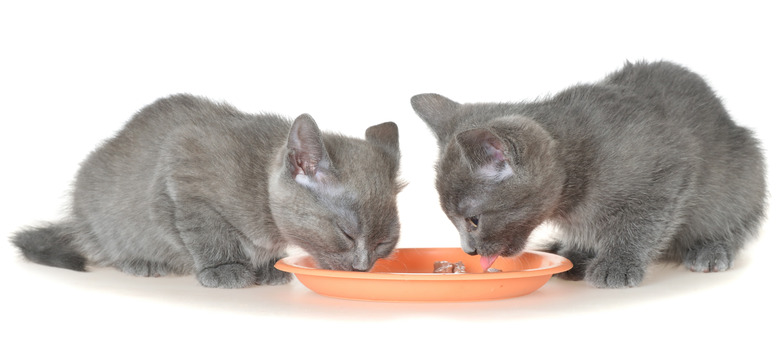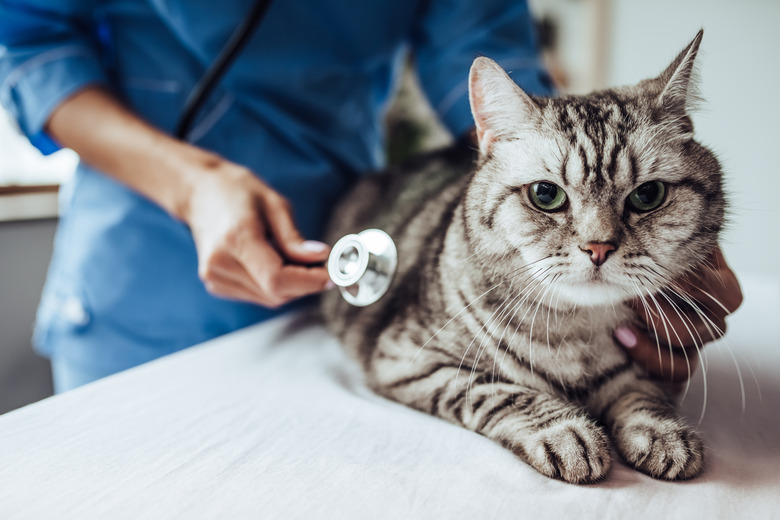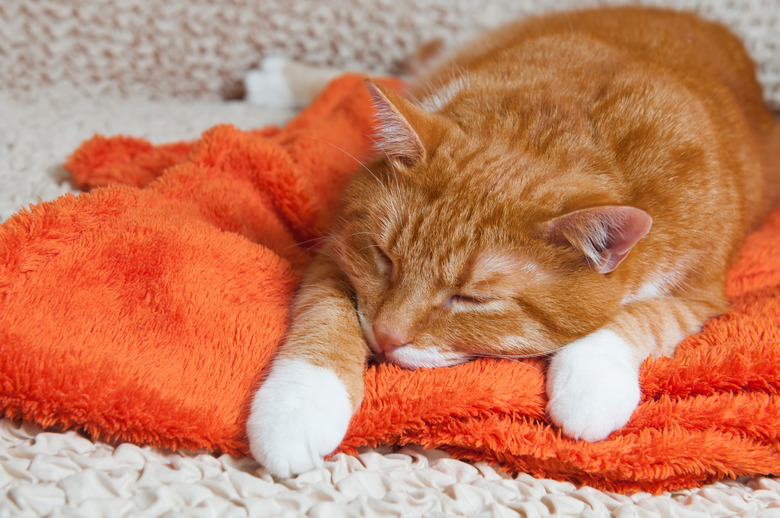Why Is My Cat Throwing Up Right After Eating?
It's a situation most pet owners would prefer not to deal with, but one that is sure to come up at least once during your time together: vomit. More specifically, cat vomit. Sometimes, it's the result of a hairball that needs to come up, but other times it can happen just after eating. In many cases, throwing up after having a meal isn't much cause for concern, but if that puke is paired with other symptoms, or if your cat is throwing up repeatedly, you may need to take certain measures to ensure that your cat is in his best health.
Why does my cat throw up after eating?
Why does my cat throw up after eating?
Before you can begin to treat your cat's puking problem, for lack of a better term, you'll need to know exactly what is making your cat throw up after she eats. Why? Because vomiting after eating can happen for several reasons, from not-so-serious causes like scarfing down her dinner too quickly, to more concerning issues, like kidney or liver failure. When it comes to diagnosing your cat, Blue Pearl Emergency Pet Hospital makes it easier to know what you're working with by breaking it down into two categories: sudden vomiting and chronic vomiting.
If you notice that your cat suddenly vomits after eating and this isn't something that happens all that often, you may be able to attribute it to a few things. First off, cats and other animals will sometimes throw their food up if they eat it too fast. You may find unchewed pieces of food in vomit — a telltale sign of overzealous chowing down. Sometimes, a foreign object can get stuck in a cat's throat or stomach, which can lead to vomiting. Another reason your cat may suddenly lose her lunch is a reaction to medication, some of which can leave pets (and people) feeling a little woozy. More serious causes of vomiting include an intestinal parasite, a bacterial infection, or viral infections.
Chronic vomiting is usually a sign of something more serious, and should definitely be brought up with your veterinarian in case treatment is needed. Some reasons why your cat may be vomiting regularly include food allergies, constipation, heartworm infection, pancreatitis, and kidney failure. If you cannot easily pinpoint the cause of your cat's vomiting and suspect that something is wrong, consult with your vet, especially if vomit contains foam, blood, or is paired with diarrhea, dehydration, energy loss, or weight loss.
How to prevent vomiting
How to prevent vomiting
Depending on what's making your cat throw up, you may be able to prevent upset stomach episodes with a few easy tweaks to his diet or routine. If your cat is vomiting after he eats because he's eating too much, too fast, you can try limiting his meal portions and feeding him smaller amounts more times a day, or invest in a slow feeder bowl, which will physically prevent him from inhaling so much food in one mouthful. If your cat seems to throw up regularly after eating a certain type of food, you may want to consult your veterinarian about ruling out any food allergies, which can be done using an elimination diet to pinpoint the exact animal protein that's triggering your feline's symptoms.
When should you be concerned?
When should you be concerned?
Sometimes, vomiting isn't terribly serious and will go away on its own. If your cat throws up more than a couple of times, or especially if she's throwing up regularly, a visit to the doctor should be made a priority to help rule out any harmful medical issues. If you suspect that your cat's vomiting may not be serious as it's not accompanied by other symptoms, Vet Now suggests removing her food for a couple of hours but leaving water within her reach to drink. Then, offer her a spoonful of her food, and increase the amount of food over the course of the day to see if she improves. If this doesn't stop her from vomiting, or if her vomiting is combined with other symptoms, like bile or diarrhea, schedule an appointment with your vet as soon as possible to address any possible issues.
Always check with your veterinarian before changing your pet's diet, medication, or physical activity routines. This information is not a substitute for a vet's opinion.


